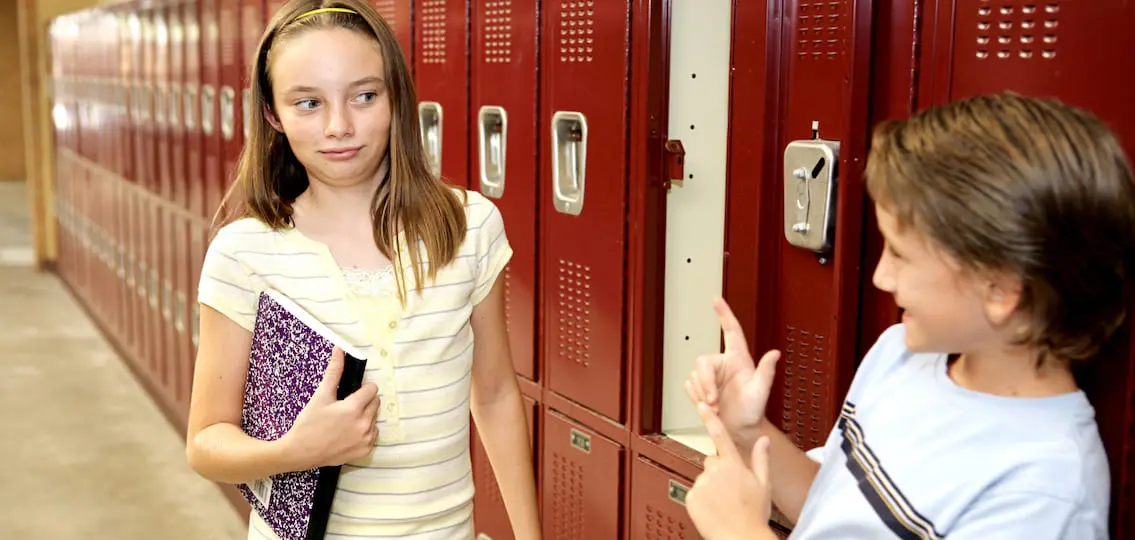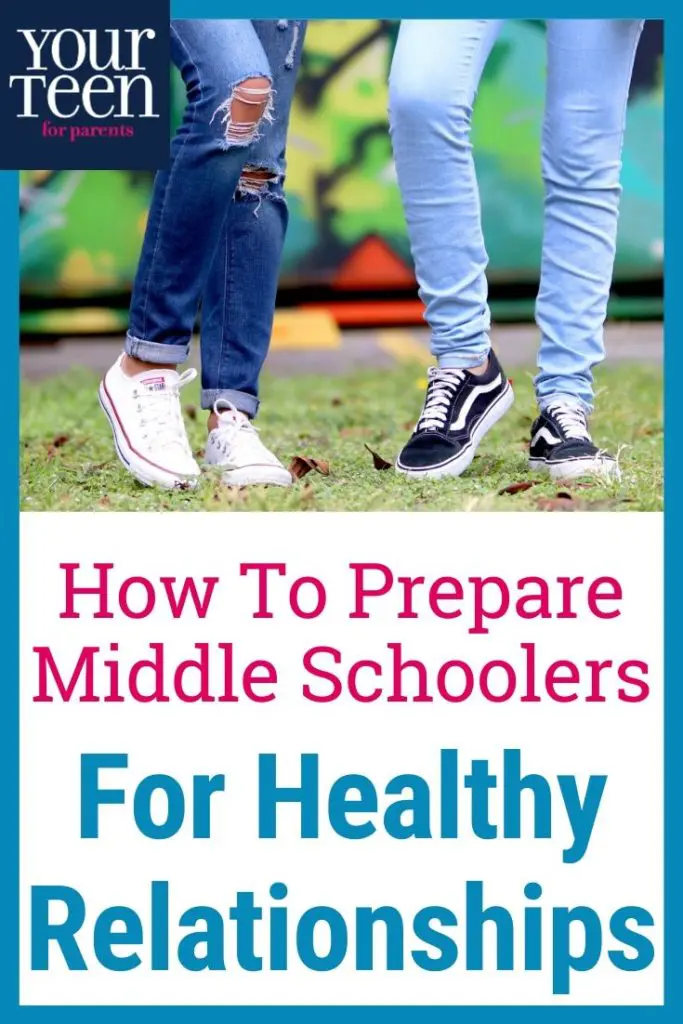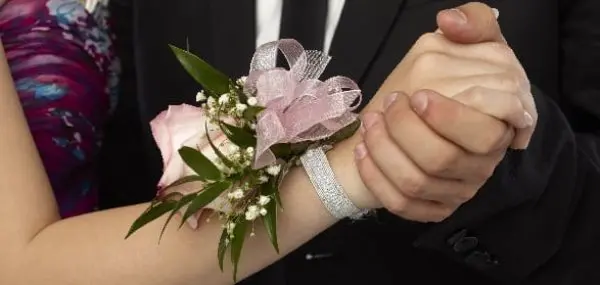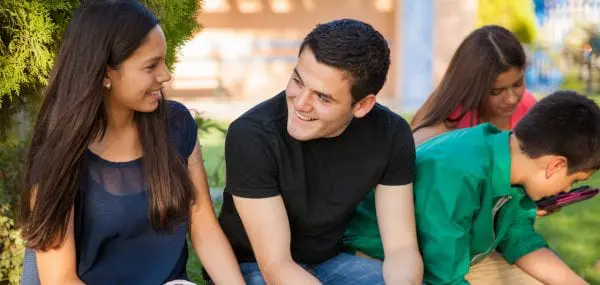When Briana Bower’s then–10-year-old son Aiden came home crying over his first girlfriend, it was not for the reason she expected. The girl hadn’t broken up with him, they hadn’t gotten into a tiff, and their parents weren’t trying to keep them apart. In reality, Aiden was in tears because the fifth-grade teachers at his Indiana school told the students that their middle school romances had to end.

The next day, parents received a letter from the teachers introducing the zero-dating policy that would end up going viral, resulting in social media backlash, national attention, and, finally, reversal of the controversial policy—which had never been approved by school or district administrators in the first place. But the debate continues as to whether tweens and young teens should be dating and what such young love should look like.
Setting the Table for Healthy Relationships
Regardless of whether you decide your middle school child is ready to date, here are four tips for setting them up for healthy future romantic relationships:
1. Don’t sexualize or “adultify” children’s friendships.
From parents joking about toddlers being betrothed to the drama surrounding middle school dances, romantic relationships are normalized long before peer pressure sets in. By age 13 or 14, 20 percent of young teens report already having dated. Kids are bombarded with adults projecting a sexualized, heteronormative lens on their friendships, says Dr. Elizabeth Miller, Chief of the Division of Adolescent and Young Adult Medicine at Children’s Hospital of Pittsburgh and professor of pediatrics at the University of Pittsburgh School of Medicine. “So why should we be surprised when children engage in this behavior?”
2. Make your expectations crystal clear.
“We’re sending kids very, very mixed messages,” Dr. Miller says, so define your family’s unique expectations when it comes to dating. Give reasons for your rules, with the idea that the rules will evolve as your child ages. “You wouldn’t give your 10-year-old keys to the car,” Dr. Miller explains. The same goes for dating, which should start in supervised group settings. Parents can then create a graduated timeframe of activities and situations they’re comfortable with as their child matures.
Of course kids are going to break the rules. That’s a healthy part of growing up. But what’s important is that they are choosing to break the rules with what Dr. Miller calls “all the tools to understand all the gray area” when it comes to middle school romance.
3. Define what healthy, respectful romantic relationships are.
All relationships look different. But the best ones have a few qualities in common: both partners feel good about themselves individually and as a couple; everyone’s needs are met; and the partners communicate openly, often, and well. These are also essential factors when relationships turn sexual. But this means first achieving the maturity and self-reliance to engage in safe, consensual sexual activity within a respectful relationship. (And this is not going to happen in the tween and early teen years.)
Also make sure your kids know what healthy sexuality is not by discussing sex positivity and bodily autonomy in the face of:
- Pornography and its distorted portrayal of body image and sexuality.
- Sexting, its legal ramifications, and how degrading it can be.
- Dating violence prevention, especially during Teen Dating Violence Awareness and Prevention Month. (Parental monitoring can protect against teen dating violence.)
4. Talk, and talk often.
“Always start the conversation with their friends and what behaviors they’re into,” Dr. Miller advises. This will help you gauge what your child is encountering so you can focus your chats while reiterating your values and rules. Plus, once your child feels at ease discussing tough topics with you, they are more likely to keep doing so.

For Briana Bower and her son Aiden, open communication seems to be paying off. “It’s important to build trust with your children so they can be open and honest with you,” Bower says. “Aiden tells me everything. He comes to me with any issues or worries he’s having.”





